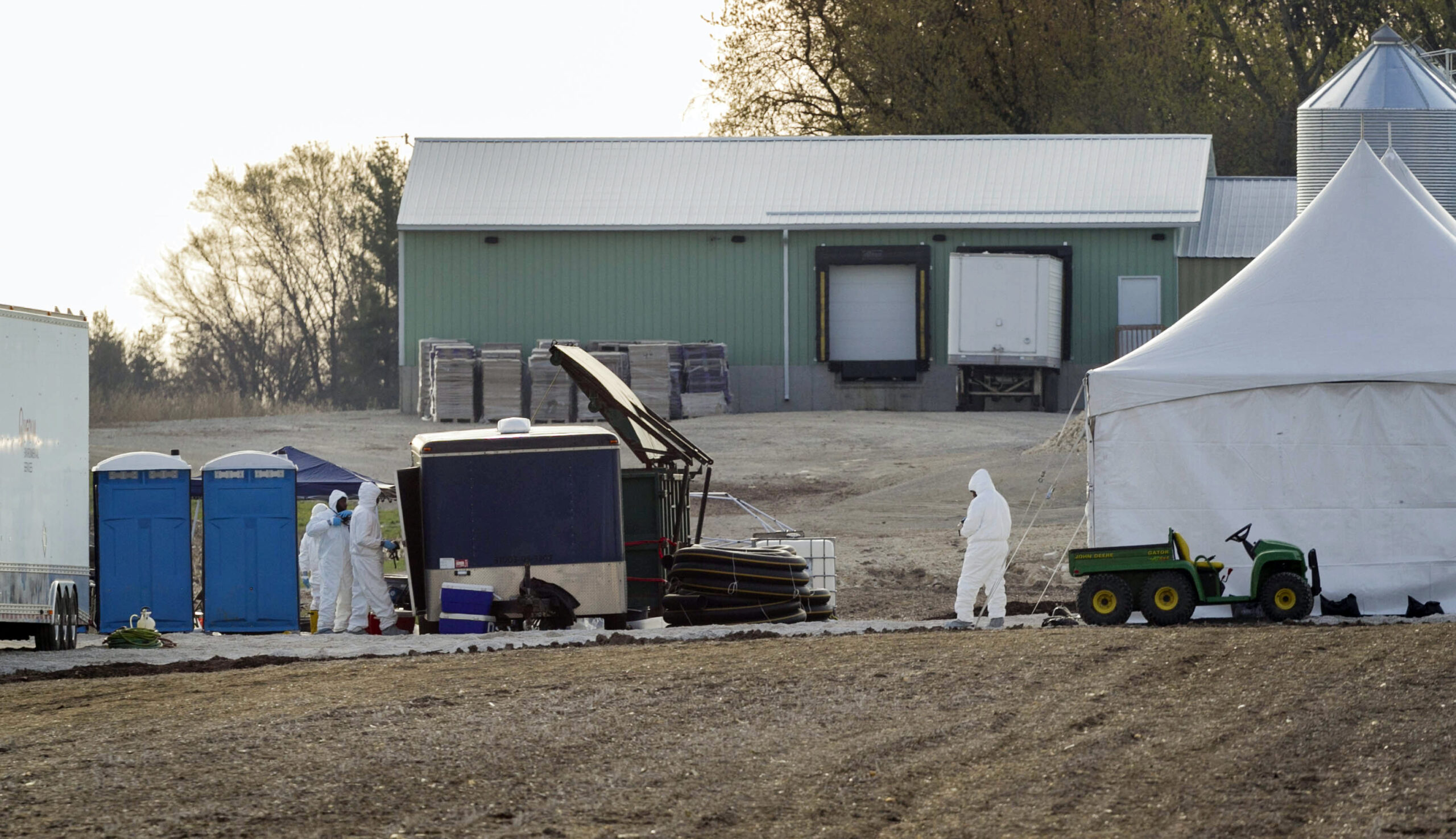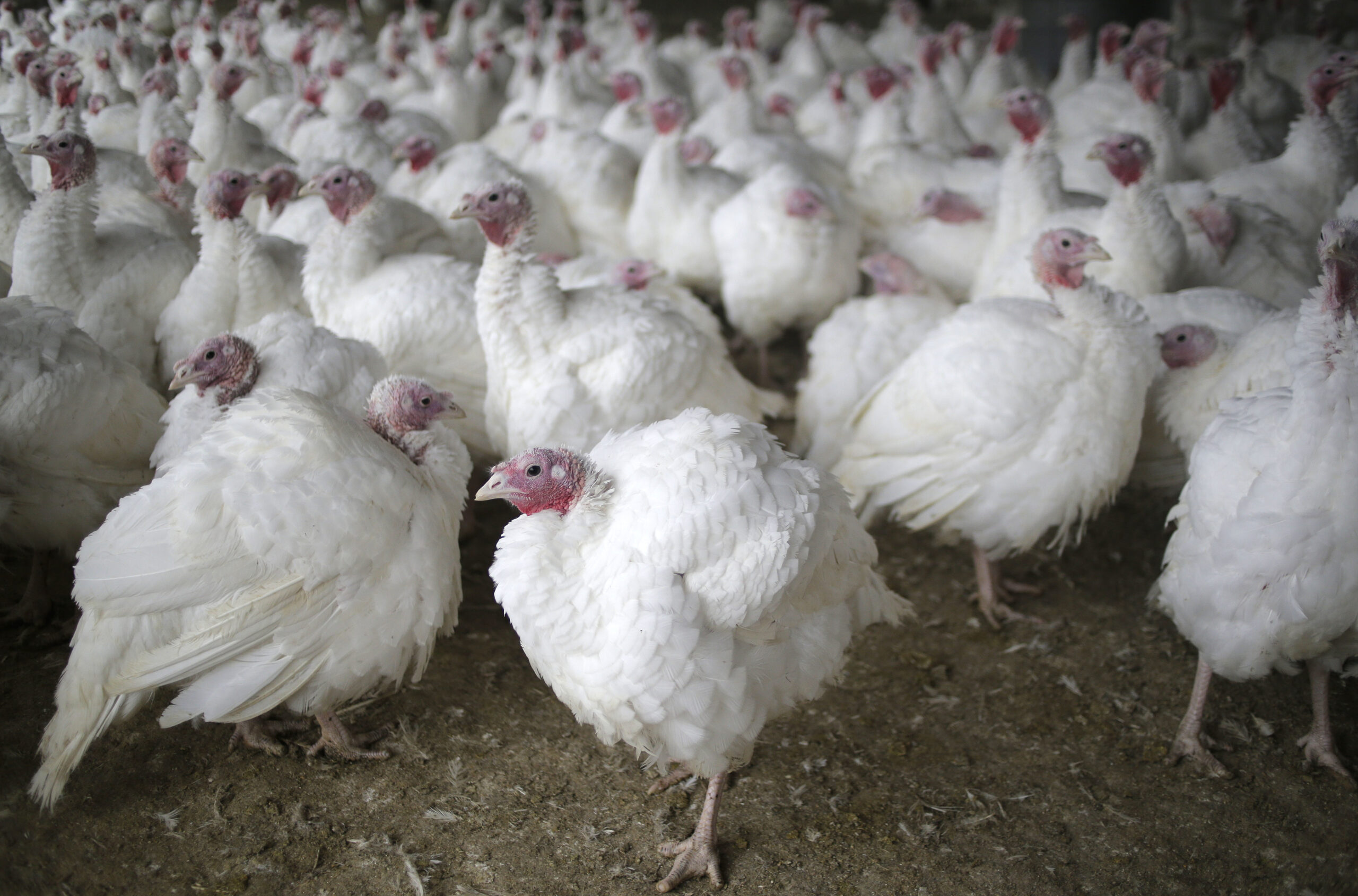New scarecrows: Lasers aim to deter wild birds and reduce disease on Wisconsin farms

When the human eye examines one of Craig Duhr’s lasers at a Wisconsin farm, only a green dot is visible. But to birds, a variety of green beams and shifting patterns appear.
“They see it as a threat, like a stick coming at them or a predator moving in,” Duhr said. “As they see that, they just want to avoid the area altogether.”
Duhr works for a company called Bird Control Group, which sells lasers to deter wild birds and limit the spread of avian influenza among livestock. Duhr recently appeared on WPR’s “The Morning Show” to discuss the technology amid Wisconsin’s spring bird migrations when the risk of spreading avian flu is higher.
Stay informed on the latest news
Sign up for WPR’s email newsletter.
Wisconsin’s agriculture department recommends farmers use biosecurity measures, such as lasers, to protect poultry flocks. State authorities also recently urged caution for farmers after confirmed cases of avian flu in Kansas, Texas, Michigan and Idaho dairy herds.
Avian flu remains prevalent in Wisconsin’s wild bird populations and the risk to farms this year is about the same as recent years, said Ron Kean, a poultry specialist with the University of Wisconsin-Extension. Kean said lasers are a great option to reduce spread of the disease.
“Keeping the wild birds away from our domestic birds seems to be a big part of biosecurity,” he said.
The avian flu, also known as bird flu, can have devastating consequences to farming industries and the health of birds, according to the World Organization for Animal Health. The disease has sporadically reached humans before and can be a concern for public health.
Duhr said farmers typically install two to six lasers on their properties. Bird Control Group uses the second-generation version of a green laser that scientists developed in the Netherlands in 2012. The company tried red and other colors. But studies suggest green is best to reach the birds, Duhr said.

Bird Control Group said its lasers deter birds without harming the winged creatures. Birds simply see the lasers as a threat and leave the area. Duhr said the company is participating in studies with universities to study the effectiveness of the technology.
This year, the Minnesota Department of Agriculture offered grants to farmers for installing supplies or equipment that prevent disease outbreaks. The state included lasers in its list of project examples.
Bird Control Group started working with some Minnesota farms experiencing outbreaks about two years ago. Since the farms added lasers, Duhr said, the farms have had no outbreaks.
“That’s the data we have,” he said. “That’s why we’re looking to the University of Minnesota and working with Minnesota Turkey Growers Association to help get more studies in and have a better understanding of just exactly how this is working and how it’s affecting the poultry industry and keeping the birds away.”
Duhr said the company’s lasers always run different patterns to prevent birds from learning how to avoid the lasers and still get into a protected area.
“With the amount of patterns and waypoints we can put in there, it’s so many that they don’t even understand how it works and where it’s going to be next,” he said. “They do not get used to it.”
The lasers fail to deter a few types of birds. Woodpeckers are one example.
“We have no idea why,” Duhr said with a laugh.
Bird Control Group is developing a prototype for the third-generation version of the laser technology, Duhr said. One potential new feature would be connecting to the internet so users can see the lasers from a laptop.
READ MORE: Wisconsin dairy farms closely watching avian flu cases in cattle

Wisconsin Public Radio, © Copyright 2024, Board of Regents of the University of Wisconsin System and Wisconsin Educational Communications Board.





